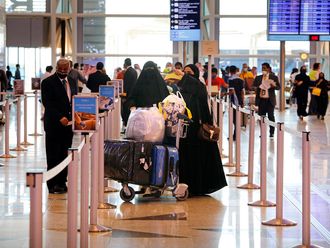Geneva: Two more people in Saudi Arabia have contracted the deadly Mers virus, short for Middle East Respiratory Syndrome coronavirus, the World Health Organisation has said.
The UN’s health body said one 42-year-old female health care worker and a 26-year-old man who were in close contact with a Mers patient are both suffering from mild symptoms and have not been hospitalised, WHO said.
The announcement came amid growing concern about the spread of the virus that so far has killed 45 of the total 88 people confirmed to have contracted it, especially as worst-hit Saudi Arabia braces for the Haj pilgrimage.
On Saturday, Saudi Arabia, which counts 67 cases and 38 deaths to date, urged the elderly and chronically ill, as well as children and pregnant women, not to perform the Haj.
The UN’s health body also said that four health care workers from two hospitals in Abu Dhabi had contracted Mers, after caring for a patient who had fallen ill with the disease.
In two of the cases, a 28-year-old man and a 30-year-old woman had not developed sypmtoms of the illness, while two other women, aged 30 and 40, were in stable condition.
And WHO’s emergency committee has been meeting for the first time since the 2009 H1N1 influenza outbreak, although it concluded on Wednesday that it was still too early to step up the level of alert and declare an international public health emergency.
It did however say the WHO should help nations boost surveillance and laboratory capacity and to do more to inform the public about how to reduce the risks of infection, through for instance good hygiene.
Experts are struggling to understand Mers, which still lacks a vaccine and which has an extremely high fatality rate of more than 51 per cent.
It is considered a cousin of the Sars virus that erupted in Asia in 2003 and infected 8,273 people, nine per cent of whom died.
Like Sars, Mers is thought to have jumped from animals to humans, and shares the former’s flu-like symptoms — but differs by causing kidney failure.









